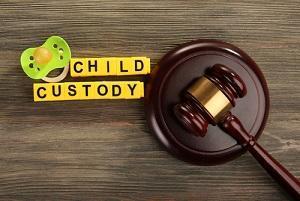Recent Blog Posts
Understanding the Legal Implications of Spousal Abandonment in Illinois
 In the wake of a heated argument, one spouse may decide to leave the other for a short period of time. Although it is not uncommon for married couples to argue or want to spend time apart, certain behaviors may constitute spousal abandonment according to Illinois law, and this may be grounds for divorce.
In the wake of a heated argument, one spouse may decide to leave the other for a short period of time. Although it is not uncommon for married couples to argue or want to spend time apart, certain behaviors may constitute spousal abandonment according to Illinois law, and this may be grounds for divorce.
What Constitutes Abandonment?
In most cases, it is best for divorcing spouses not to change the living arrangement by relocating. The exception is when there are factors that put either spouse or any children in danger.
The courts do not consider every situation involving one spouse leaving to be abandonment. However, when one spouse leaves without any explanation, does not return for one year or longer, and provides no information about where he or she is, this may be abandonment.
Blended Family: Balancing Natural and Stepparents' Visitation And Custody
 Child custody and visitation plans can be some of the most challenging and potentially contentious aspects of a dissolution of marriage proceeding. Additionally, the composition of the modern, blended family can present additional challenges when there are stepparents involved in or impacted by custody agreements.
Child custody and visitation plans can be some of the most challenging and potentially contentious aspects of a dissolution of marriage proceeding. Additionally, the composition of the modern, blended family can present additional challenges when there are stepparents involved in or impacted by custody agreements.
Visitation and Custody Agreements in Illinois for Natural Parents
In Illinois divorce cases involving children, it is typical that one parent is designated as the primary or residential parent of the child(ren). This is to ensure continuity for administration of a legal mailing address and school district qualifications.
The residential or custodial parent is most often the parent with whom the children spend the majority of their time. It is important for parents to understand that joint custody agreements do not automatically equate to an even split of the parenting time between both parents. The non-custodial parent will receive, unless there is a reason to deny the request, visitation rights to foster their relationship with the child(ren) and provide him or her with parenting time.
Do Parents Force Children to Choose Between Mom and Dad?
 A Michigan judge made headlines earlier this summer when she ordered three children – ages 14, 10, and 9 – to spend time in a juvenile correctional facility when they refused to have lunch with their father. Such an extreme case of parental alienation syndrome is quite rare, but PAS is common in most DuPage County child custody disputes, to one degree or another.
A Michigan judge made headlines earlier this summer when she ordered three children – ages 14, 10, and 9 – to spend time in a juvenile correctional facility when they refused to have lunch with their father. Such an extreme case of parental alienation syndrome is quite rare, but PAS is common in most DuPage County child custody disputes, to one degree or another.
Oakland County Circuit Court Judge Lisa Gorcyca issued the order in a six-year-old divorce case between a General Motors engineer father and a pediatric eye doctor mother. Much of the rancor in the case stems from an August 2010 incident at a West Bloomfield park; the township is an upscale Detroit suburb. Apparently, the mother locked two of the children in a car to “protect” them against their father; a third child climbed to the top of a piece of playground equipment to escape his father who, according to the child, threatened to kill him if he did not come down.
Temporary Custody and Visitation Modification for Armed Forces Deployment
 Military families are often asked to make tremendous sacrifices in order to provide the armed services with manpower necessary to protect the United States of America. Under the best of circumstances, a lengthy deployment or training exercise can have a dramatic impact on the stability of an affected family. Of course, for separated or divorced parents who serve, the effect can be even more severe, as an order for child custody—soon to be called allocated parental responsibilities—cannot possibly take into account the unpredictability of a deployment situation. Fortunately, the law in Illinois provides a measure of relief for military parents which can help them fulfill their duties without the risk of legal action for non-compliance with a family court order.
Military families are often asked to make tremendous sacrifices in order to provide the armed services with manpower necessary to protect the United States of America. Under the best of circumstances, a lengthy deployment or training exercise can have a dramatic impact on the stability of an affected family. Of course, for separated or divorced parents who serve, the effect can be even more severe, as an order for child custody—soon to be called allocated parental responsibilities—cannot possibly take into account the unpredictability of a deployment situation. Fortunately, the law in Illinois provides a measure of relief for military parents which can help them fulfill their duties without the risk of legal action for non-compliance with a family court order.
Helping Military Parents
In most family-related cases, temporary orders are only used until a permanent order can be negotiated or entered by the court. This is not uncommon, for example, between the filing of a petition for divorce and the entry of the divorce judgment, which may not occur for several months. Temporary orders can be used to create custody and visitation arrangements, as well as interim arrangements for spousal maintenance or child support. Once the permanent order has been entered, however, only court-approved modifications can change it, and such modifications are permanent as well.
Preparing for the Holidays in Two Homes
 With Thanksgiving about a week away, and the winter holidays just around the corner, it is time to begin making plans. In most families, such plans may include which family member is bringing what dessert, and who is hosting dinner this year. For divorced or unmarried parents subject to a custody or parenting time agreement, however, the preparation process often includes some additional elements. If your child splits his or her time between your home and that of the other parent, the holiday season probably requires a level of cooperation, but with reasonable communication, the experience can be positive for all involved.
With Thanksgiving about a week away, and the winter holidays just around the corner, it is time to begin making plans. In most families, such plans may include which family member is bringing what dessert, and who is hosting dinner this year. For divorced or unmarried parents subject to a custody or parenting time agreement, however, the preparation process often includes some additional elements. If your child splits his or her time between your home and that of the other parent, the holiday season probably requires a level of cooperation, but with reasonable communication, the experience can be positive for all involved.
Check Your Agreement
Your parenting agreement may already include provisions regarding the holidays. Parenting time orders are often customized based on the traditions and priorities of each family, and there are variety of ways to make such a schedule. For example, your order may indicate that this year, your child spends Thanksgiving with you and Christmas with the other parent, and then next year, the opposite occurs. Alternatively, it may specify that your child spends the morning with you on designated holidays and the afternoon with other parent. If a particular holiday is not traditionally observed by one parent or the other, the agreement may permit the child to stay with parent who does celebrate it for the entire day.
Considering School Districts in the Allocation of Parental Responsibilities
 When parents cannot reach an amicable agreement regarding the allocation of parental responsibilities, a judge is required to make a decision based upon the best interests of a child. Among many considerations, the judge will have to decide which home is the best place for the child to live most of the time. Does the school district you live in influence that decision?
When parents cannot reach an amicable agreement regarding the allocation of parental responsibilities, a judge is required to make a decision based upon the best interests of a child. Among many considerations, the judge will have to decide which home is the best place for the child to live most of the time. Does the school district you live in influence that decision?
Education is One Factor
There are many different factors that go into making a decision that is in the best interest of the child. The type of education a child will receive is an important concern, but it is only one factor among many. Other factors Illinois judges look at when deciding what is in a child’s best interest include but are certainly not limited to:
- What provides the child the most stability;
- Mental and physical health of all involved;
- The child’s needs; and
Your Parenting Plan Could Include the Right of First Refusal
 While parenting after a divorce or a breakup of unmarried parents will nearly always be challenging, your child will benefit from determined cooperation between you and your former partner. While parents have long been permitted to develop their own agreements regarding child custody—as long as they promoted the best interests of the child—the law in Illinois was recently amended regarding child custody and parenting concerns. Today, divorced or unmarried parents are not only allowed to create a parenting plan, but they are fully expected by the court to do so. One element that must be considered in drafting a parenting plan is each parent’s right of first refusal and whether such rights are appropriate for a particular situation.
While parenting after a divorce or a breakup of unmarried parents will nearly always be challenging, your child will benefit from determined cooperation between you and your former partner. While parents have long been permitted to develop their own agreements regarding child custody—as long as they promoted the best interests of the child—the law in Illinois was recently amended regarding child custody and parenting concerns. Today, divorced or unmarried parents are not only allowed to create a parenting plan, but they are fully expected by the court to do so. One element that must be considered in drafting a parenting plan is each parent’s right of first refusal and whether such rights are appropriate for a particular situation.
Extra Parenting Time
At some point, most parents will need someone to watch their children. This, as you might expect, may be frustrating at times for a parent whose time with his or her child is already limited due to a divorce. On the other hand, a parent in that situation may also be looking for additional ways to participate in the child’s life. Including the right of first refusal in your parenting plan could directly address both concerns.
Working With a Custody Evaluator
 When you are involved in a dispute regarding parental responsibilities or parenting time, it can difficult for the court to determine an ideal resolution. While judges and attorneys are well-versed in the law, they may not have such a clear picture of your family’s unique situation. The documents and evidence that you and the other parent present during the proceedings can provide a glimpse into your life, but are often not enough, especially if one or both of you are not being totally honest. In such cases, the court may order a professional evaluator to review your family’s circumstances.
When you are involved in a dispute regarding parental responsibilities or parenting time, it can difficult for the court to determine an ideal resolution. While judges and attorneys are well-versed in the law, they may not have such a clear picture of your family’s unique situation. The documents and evidence that you and the other parent present during the proceedings can provide a glimpse into your life, but are often not enough, especially if one or both of you are not being totally honest. In such cases, the court may order a professional evaluator to review your family’s circumstances.
What Will an Evaluator Do?
An appointed custody evaluator may be utilized to help the court develop an understanding of how each of you is equipped to provide for your child. The evaluator may visit interview each parent and the child, visit each parent’s home, and gather information that will help the court in making a decision regarding the child’s best interests. He or she is required by law to prepare a comprehensive report documenting the data collected as well as his or her conclusions and recommendations about how the court should decide.
Parental Responsibilities, Part One: Decision Making
 If you are a parent going through a divorce, you have probably given thought to how the process and its aftermath with affect your relationship with your children. You may have heard horror stories from friends and family members who never get to see their children or those whose children rarely spend time with their other parent. It is possible, however, for you and your spouse to develop a plan that provides for your child’s best interests while allowing your child to maintain a healthy relationship with both of you.
If you are a parent going through a divorce, you have probably given thought to how the process and its aftermath with affect your relationship with your children. You may have heard horror stories from friends and family members who never get to see their children or those whose children rarely spend time with their other parent. It is possible, however, for you and your spouse to develop a plan that provides for your child’s best interests while allowing your child to maintain a healthy relationship with both of you.
A Two-Pronged Approach
While there are many considerations that must be made in creating a workable parenting plan, there are two primary areas of focus according to Illinois law. The first concern is determining each parent’s responsibilities for significant decision making while the second addresses each party’s parenting time with the child.
Significant Decision-Making Responsibilities
YouTube Personality Loses Custody of Children Over Videos
 A popular—albeit rather infamous—YouTube personality who goes by the username “DaddyOFive” has lost custody of two of his children. The kids are currently staying with their biological mother. The father gained notoriety on the video sharing site when he started posting videos of interactions between himself, his current wife, and children. The videos contain a number of “pranks” played on the children—acts which many viewers and commenters found to be cruel and even abusive.
A popular—albeit rather infamous—YouTube personality who goes by the username “DaddyOFive” has lost custody of two of his children. The kids are currently staying with their biological mother. The father gained notoriety on the video sharing site when he started posting videos of interactions between himself, his current wife, and children. The videos contain a number of “pranks” played on the children—acts which many viewers and commenters found to be cruel and even abusive.
Pushing Things Too Far
In one controversial video, a smiling woman appears and explains that her stepson had previously gotten in trouble for spilling ink on the carpet. She tells the camera that she is going to act like the child did it again. The woman sprays disappearing ink onto the carpet, then she and the child’s father call the son into the room. What follows is disturbing to many viewers: The two adults verbally berate the child for the spilled ink, screaming and cursing loudly at him. The child begins crying as he desperately tries to explain that he did not spill the ink. The verbal abuse goes on for an agonizing three full minutes before the parents laughingly tell the child that it was “just a prank.”









